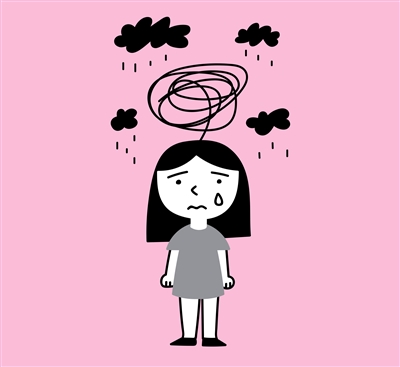Reducing Childhood Anxiety

Childhood Anxiety is certainly one of the most important mental health challenges of our time. According to the National Institute of Medical Health as many as one in five children will suffer from some kind of anxiety before they reach adolescence.
It`s important to differentiate anxiety from normal childhood fears - such as fear of the dark, and fear of spiders or monsters. Every child will be trepidatious about certain things adults know to be completely benign, and most parents will be well used to the process of opening cupboards and checking under beds, relieving their child`s fears that these dark spaces are filled with something malevolent.
`The main thing to know about anxiety is that it involves some level of perception about danger,` says Danny Pine, an adolescent and child psychiatrist at the NIMH. `Children are naturally afraid of strangers. That`s an adaptive thing. They`re afraid of separation.`
Fears become anxieties when they begin to impinge upon a child`s regular day-to-day activities. Most children will have some apprehension about meeting new people, but if this fear is such that they don`t want to go to school, or even leave the house, their fears have become a controlling (and debilitating) force in their lives.
Fear is essentially the perception of some dangerous event in the future: one is afraid of the dog because they perceive it may bite them, and one is afraid of heights because they believe they may fall. These are all rational fears, alleviated once the perceived danger is gone. Anxieties can be more nebulous in their subject: instead of being afraid of a single person a child may be apprehensive around all people.
Many children may have difficulty expressing what is making them anxious, and may seek to hide their worries from their parents or teachers. There are a number of signs one should be on the lookout for, that may indicate a younger child is suffering from anxiety, such as:
- The child has developed sleep issues, such as having bad dreams, wetting the bed, or waking during the night.
- The child has become excessively clingy.
In older children anxiety may be more difficult to spot. Adolescence is naturally a time of change, and anxiety should not be confused with any natural moods and dispositions this difficult age often brings. Signs you should look out for include:
- Persistent negative thoughts, and long periods of sullenness and lethargy.
- Regular outbursts of anger.
- Refusing to go to school.
- Avoiding social activities with friends, and a reluctance to go out in public.

The best way to help a child or adolescent who is suffering from anxiety is to let them know you are there for them. Try to create an environment where they feel comfortable talking to you about what is worrying them. Children inhabit very different social worlds to adults, and matters causing them upset and distress might seem somewhat trivial. It is important to be empathetic to their concerns - telling them to `snap out of it,` or `just ignore what that person says` may not be helpful.
Anxiety very often has no obvious cause, and each child will have different needs when it comes to attending to their concerns. There are however a number of things that will generally help a child who is suffering from anxiety:
- Encourage them to recognise their anxiety, to be on the look out for signs of it manifesting itself. In this way they will come to view anxiety as something that is afflicting them, rather than something that is inherently part of their character.
- Encourage them to always ask for help should their feelings become overwhelming. Find out if there is a mental health lead at school, and inform your child they can request help during school time should they need it.
- Many children find routines useful, so try to help them set up a healthy system, with regular meals and study times. An established daily pattern will ensure their circadian cycle is well regulated, leading to better quality sleep.
If a child`s anxiety persists, and is severe enough to have a lasting negative effect on their day to day life, it`s time to seek help. A GP will be able to offer support, but you may want to talk to someone at their school as well. Do not do anything without informing your child first, but let them know you are there for them, and that help is available. Young Minds` offers a free help line for parents, and can be reached weekdays 9:30am to 4:30 pm on 0808 802 5544.

 Add a Comment
Add a Comment